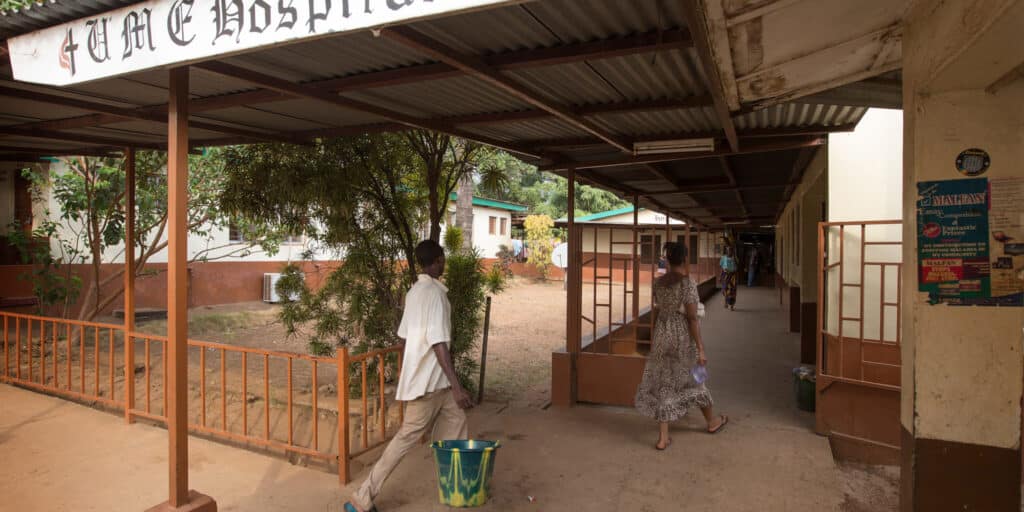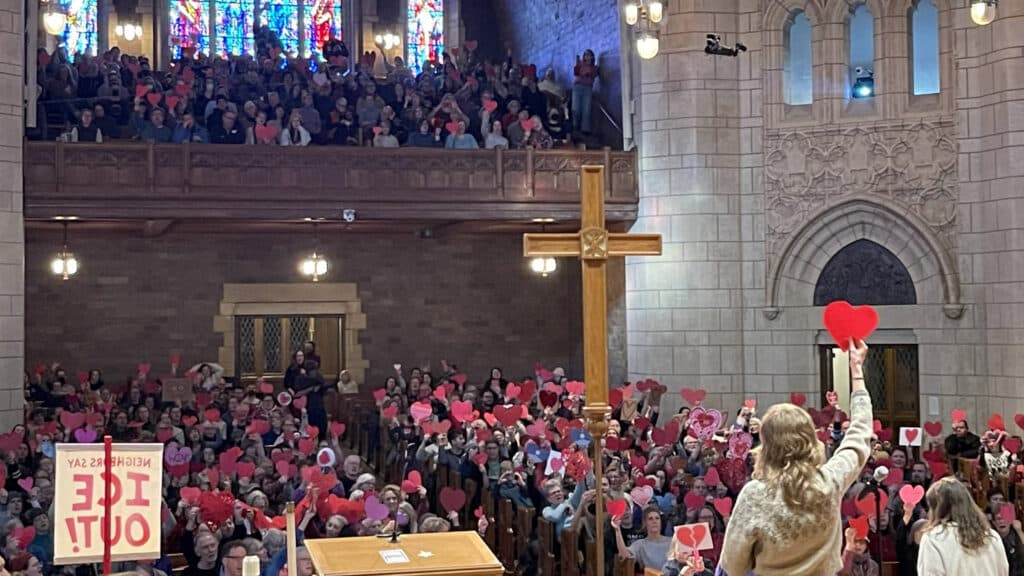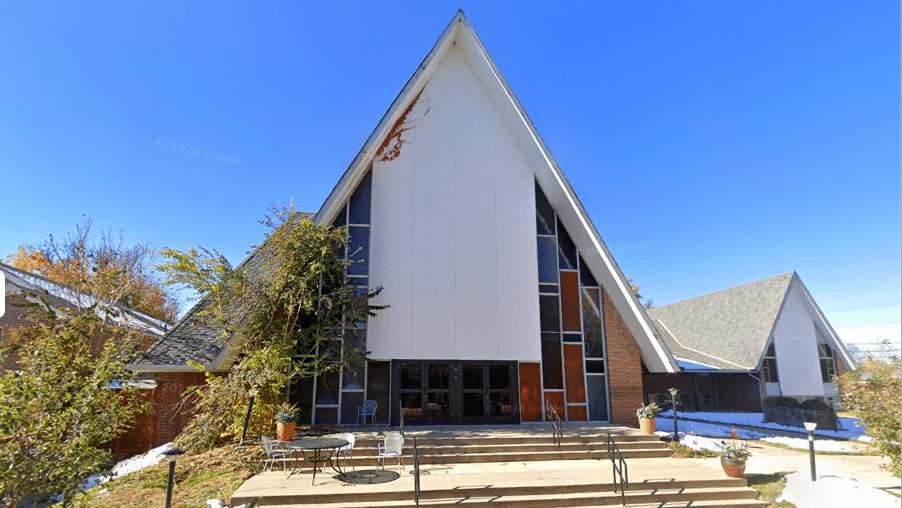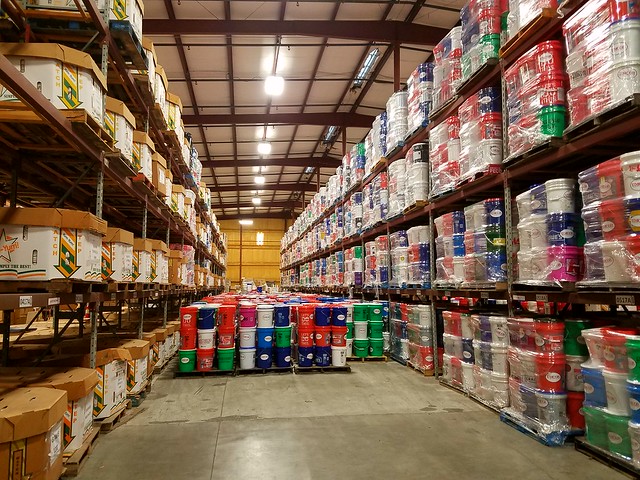Kissy United Methodist Hospital serves one of the poorest neighborhoods in Freetown, Sierra Leone. PHOTO: MIKE DUBOSE, UMNS
Martha Fatoma, a 2021 graduate with a B.S. in nursing from Africa University, has worked in her field for 20 years. A World Communion Scholarship helped her attain a degree as well as a higher level of understanding and professionalism, which she now passes on to the nurses she supervises.

By Martha Fatoma
September 21, 2021 | SIERRA LEONE
I am a wife and mother in my 40s, with a daughter in high school, and I also care for my niece and my father.
I am matron at the United Methodist Kissy General Hospital in Freetown, Sierra Leone. For the past three years, I have worked with nurses to administer the day-to-day running of nursing affairs. I prepare duty rosters, compile reports from all departments, oversee medical and nursing care for all patients and do my best to coordinate the work of caring for patients at the hospital.
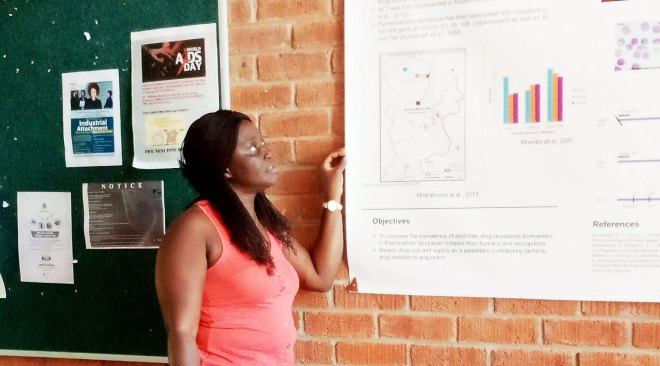
Born in the Bo District of Sierra Leone and a member of the United Methodist Church in Kossoh Town, I entered nursing school in 1997 and attained a State Enrolled Community Health Nursing Certificate (SECHN) in 2001. That year I began work with Kissy Hospital. In 2007, I sought further studies at the College of Medicine and Allied Health Sciences, where I obtained a State Registered Nursing Certificate in 2010. I then resumed my duties with Kissy Hospital in December that same year.
I used to travel as a health worker in the community, helping to inform people about health care, administering vaccinations and referring children at-risk for malnutrition back to the hospital. I enjoyed this kind of work to promote community health.
Even though my life was already hectic, I wanted to pursue further studies for a Bachelor of Science in Nursing. I hoped to improve at promoting and restoring health, preventing illness and facilitating a better life for those in need. So, in 2019, after I received a World Communion Scholarship from Global Ministries, in partnership with the Sierra Leone Annual Conference, I left my family and duties in Sierra Leone and traveled to Zimbabwe to pursue further education.
From face-to-face to facing a screen
I arrived at Africa University’s main campus on August 5, 2019. I stayed a year on campus until August 2020. Then COVID-19 began to take its toll on Zimbabwe.
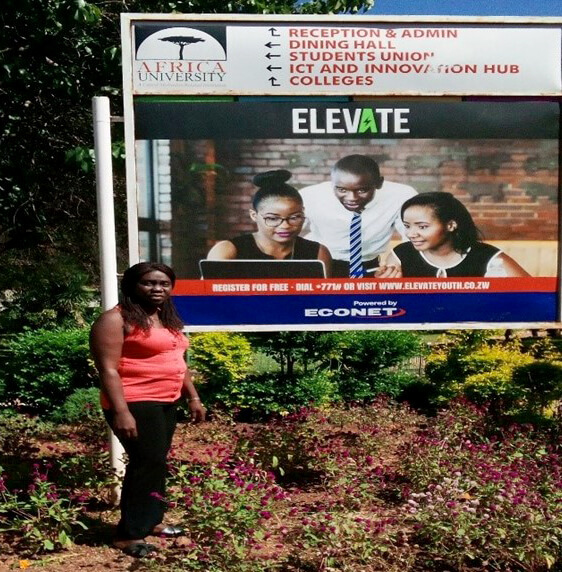
Before long, lock-downs became serious, and I wondered when I would see my family again. But fortunately, the chancellor of Africa University at that time was also my resident bishop in Sierra Leone, Bishop John Yambasu. He arranged for my return home, since the university authorities decided all students would continue classes online the following semester. Tragically, Bishop Yambasu died in a car accident that same month, but he got me home to Sierra Leone.
In-person classes and online learning have marked differences. The course content was the same in both cases, undiluted. But learning online was difficult for me because my internet access was limited, and I had trouble reaching the virtual library. I enjoyed researching through the main campus library, as I received much-needed assistance from the university librarians. The medium online poses certain difficulties and requires a reliable network connection and an understanding of phonetics and the pronunciation of words by lecturers on audio and video presentations. I had trouble downloading assignments when the package was too large for my network to handle, almost daily. Communication with the university administrators from my home country posed another challenge.
I continued third semester classes online. Then my last semester was coupled with a 12-week internship, which we were able to arrange with the University of Sierra Leone Teaching Hospital Complex. I graduated by virtual means on July 3, 2021.
Integrating new insights at home
As part of my studies, I learned managerial skills that I am applying now at Kissy Hospital, teaching my colleague nurses how to provide quality care to our patients, to work with colleagues cordially and to be examples in leadership. Kissy Hospital has undergone considerable improvements in management and care over the last decade with the development of the Sierra Leone United Methodist Health Board. Punctuality in reporting to duty, observing the institutional rules and regulations and cordial relationships are taken much more seriously now.
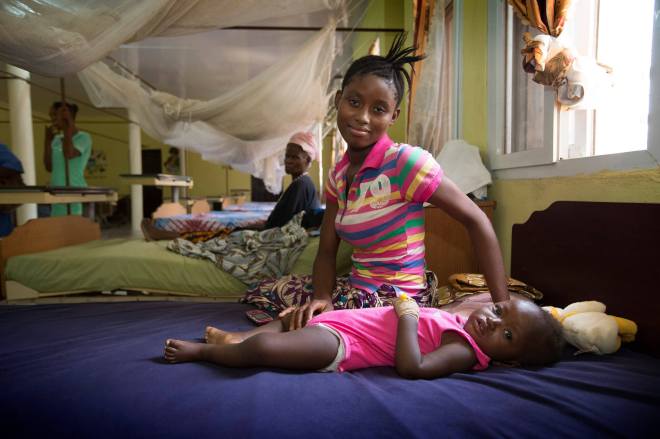
I learned a good deal about professional standards for hospital management and patient care and I have helped to raise the standards among the nurses at Kissy Hospital. They are now consistently punctual on duty, rendering quality care to our patients in all the departments – maternity, medicine, surgery, physiotherapy and all other departments. Reports are sent to management on time, as I am now working with the reporters.
I have taken on a role as coach for quality improvement. We have changed the patients’ waiting time from 3-4 hours to 2 hours, especially at the maternity department. We’ve also improved report writing, prompt referral to the central hospitals and communication skills from junior and intermediate staff to management.
Though I have returned to the same job as hospital matron, I feel my studies have allowed me to approach my work in a different way and to pass on my new perspectives to my colleagues and coworkers. It was not an easy journey for me, but it was a gift from God, and I am thankful for God’s steadfast love and care.
Martha Fatoma, a World Communion Scholar through Global Ministries, continues to serve her family, church and community in Sierra Leone through her work at Kissy Hospital and in her personal and spiritual life.
World Communion Sunday is one of United Methodism’s six Special Sunday offerings, taken this year on October 3. Funds collected in local churches continue a long history of educating for excellence in any number of fields. Prepare for the October offering with your local church, find out more or give online at the link above.
